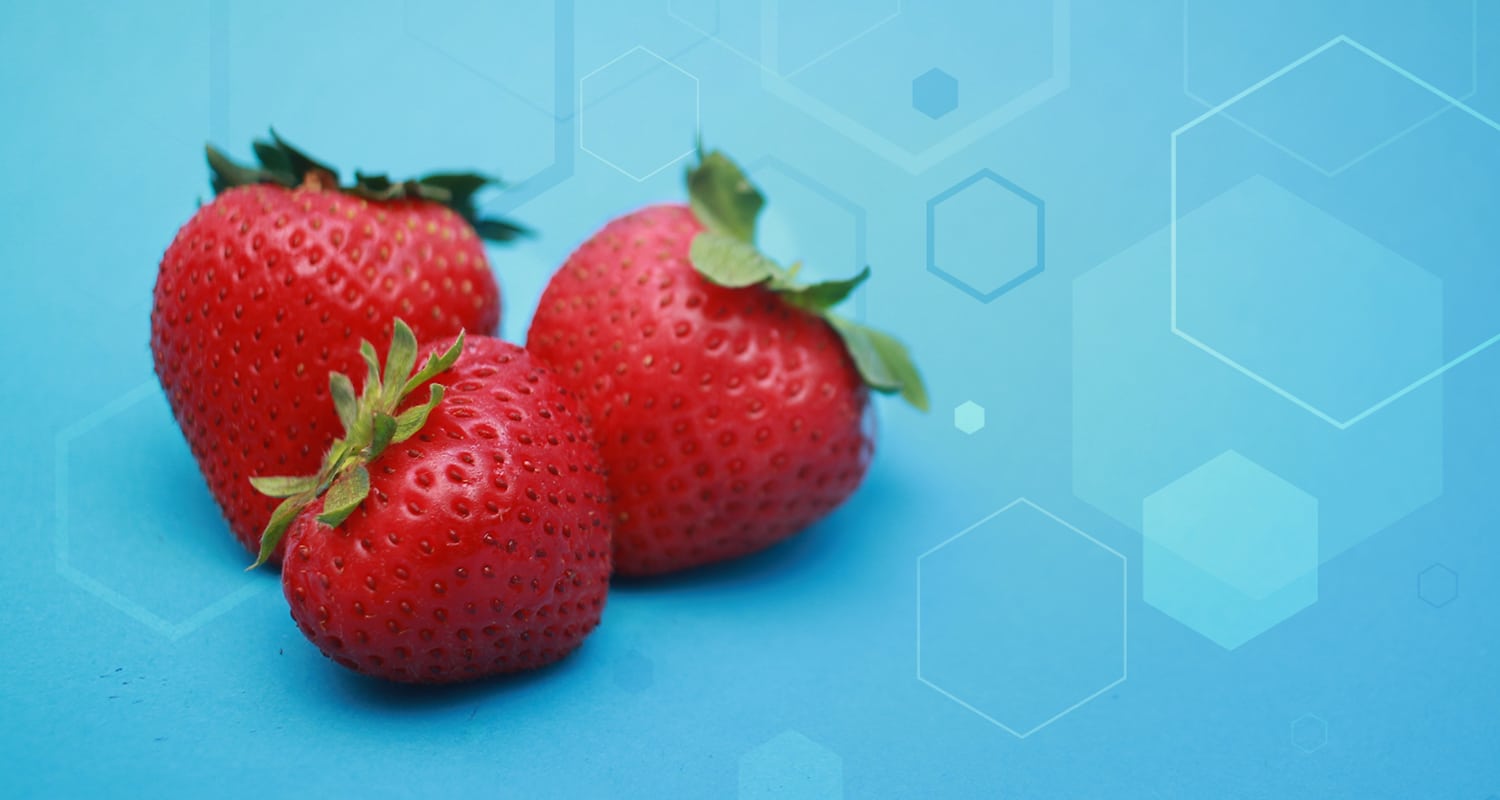
[tldr]
- Fisetin is a special antioxidant found in strawberries, apples, persimmons, onions, and other plants, that’s particularly good for slowing down aging.
- Recent research found that eating fisetin regularly increases lifespan by about 10% and improves quality of life in aging mice. There are clinical trials going on right now to find out whether fisetin can slow down aging in humans.
- Fisetin also protects you from future inflammation and gets rid of existing inflammation. Low inflammation means your cells can run at full power and you can recover faster.
- Fisetin shows a lot of promise at fighting cancer, too. It prevents cancer cells from spreading and destroys them. Fisetin seems particularly good at destroying breast cancer cells.
- Strawberries are a rich source of fisetin. You can also get some fisetin from cucumbers and onions. Check out the recipes below for ideas about fitting more fisetin into your diet; it might help you live a longer, better life.
[/tldr]
Have you heard of the flavonoid fisetin? It’s a plant chemical, found most abundantly in strawberries, with promising health benefits.
Anti-aging scientists have been researching fisetin and its benefits for a while. They expected it to perform as well as other antioxidants do at decreasing inflammation and making cells more efficient. However, a couple recent studies have found that fisetin is much more powerful than anyone expected, in a couple different ways. Let’s take a look at the benefits of fisetin, and why you definitely want to supplement your diet with fisetin.
You: Better at every decade. Order my new book, Super Human to start aging backward today.
Benefits of fisetin
- Improves brain health and memory
- Slows down aging
- Shows anti-cancer abilities
- Protects against stress and inflammation
- May protect against stroke and Alzheimer’s[ref url=”https://www.ncbi.nlm.nih.gov/pmc/articles/PMC5527824/”]
- May improve symptoms of depression[ref url=”https://www.ncbi.nlm.nih.gov/pmc/articles/PMC4356956/”]
Fisetin slows down aging…a lot
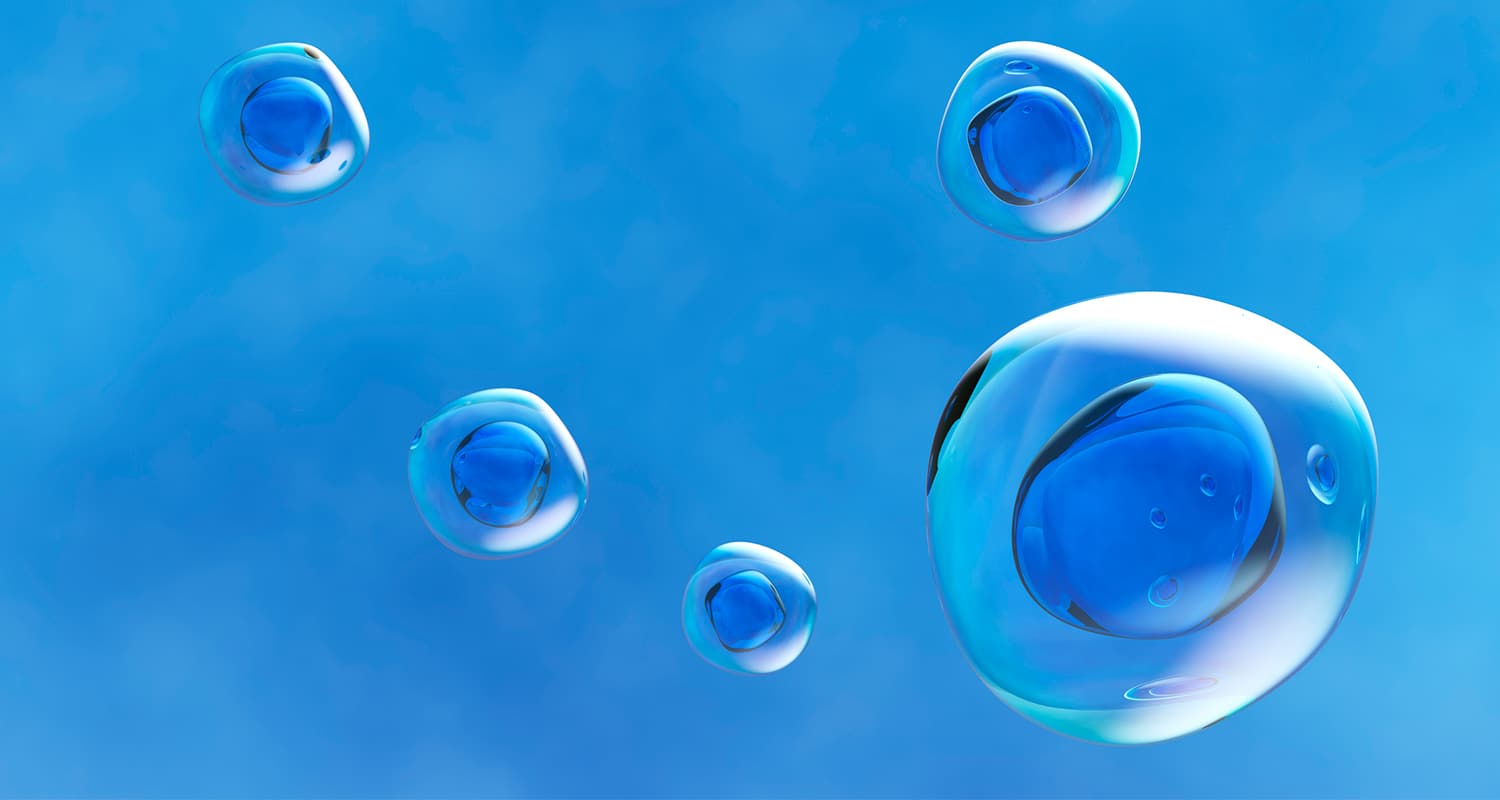
Senescence isn’t pretty, which is why anti-aging researchers are on the hunt for senolytics, compounds that delay or reverse aging by destroying old, damaged cells.
New research has found that fisetin is a particularly powerful senolytic. Scientists fed aging mice either normal diets or fisetin-rich diets and watched for signs of aging. The mice that ate fisetin daily lived about 10% longer and their bodies worked better, even at a very old age.[ref url=”https://www.ebiomedicine.com/article/S2352-3964(18)30373-6/fulltext”]
A 10% increase in longevity means living to 110 instead of 100. That’s a big deal. If you plan to live to 180, like Bulletproof founder Dave Asprey, hacks like this can move the needle a lot. There’s a clinical trial going on right now that will shed light on how well fisetin slows down aging in humans.[ref url=”https://clinicaltrials.gov/ct2/show/NCT03430037″] In the meantime, it can’t hurt to eat foods rich in fisetin, or even take a fisetin supplement. For a therapeutic dose, supplements are the way to go. Studies suggest that a dose of 50mg to 150mg per day can be beneficial, though more research is needed.
Fisetin protects you from stress and inflammation
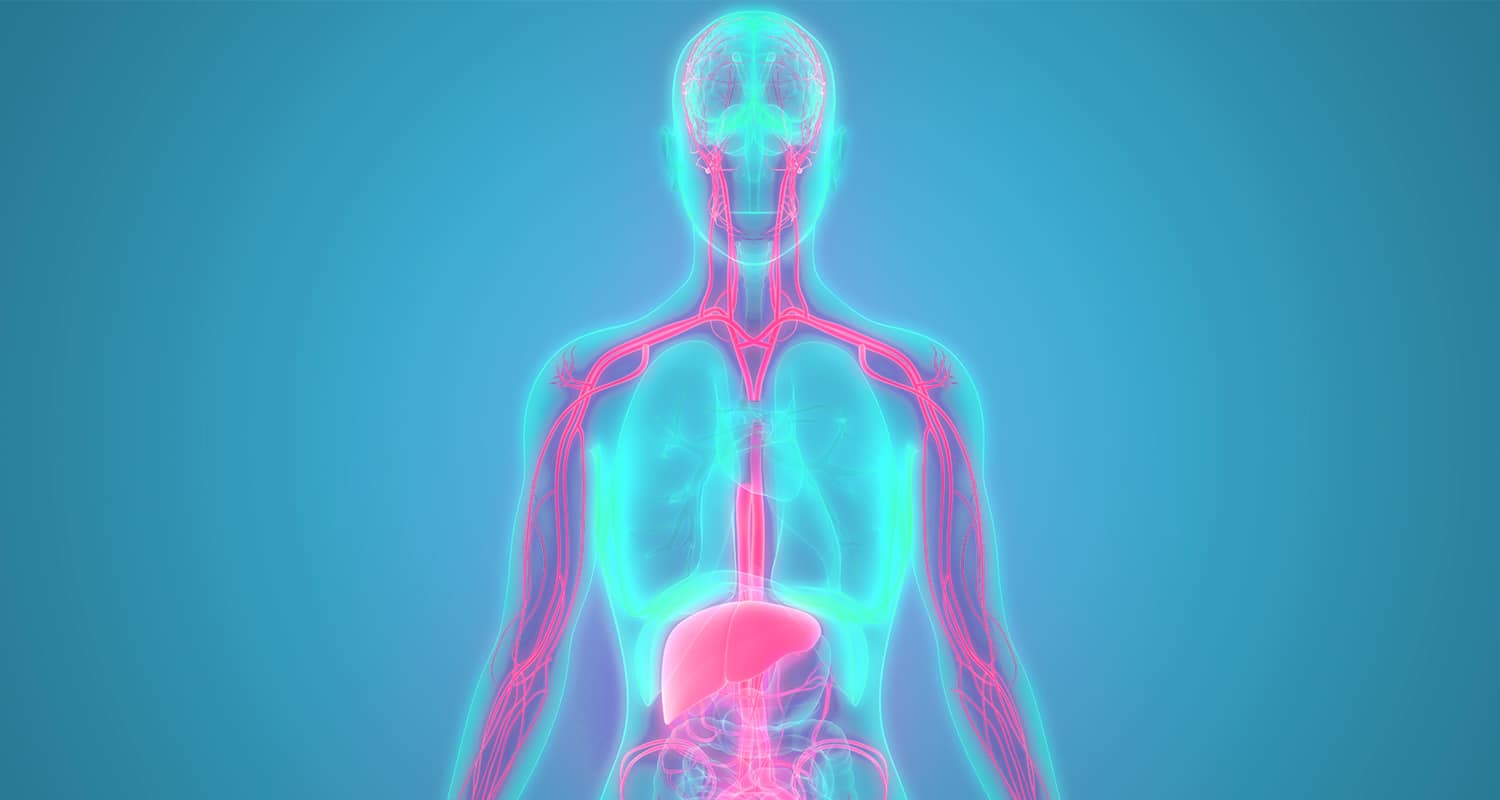
In other words, fisetin both prevents future inflammation and boosts your body’s ability to deal with existing inflammation. Low inflammation means your cells can make more energy and you look better, feel better, and recover faster.
Related: Why Reducing Stress Will Protect Your Telomeres and Help You Live Longer
Fisetin may fight cancer cells
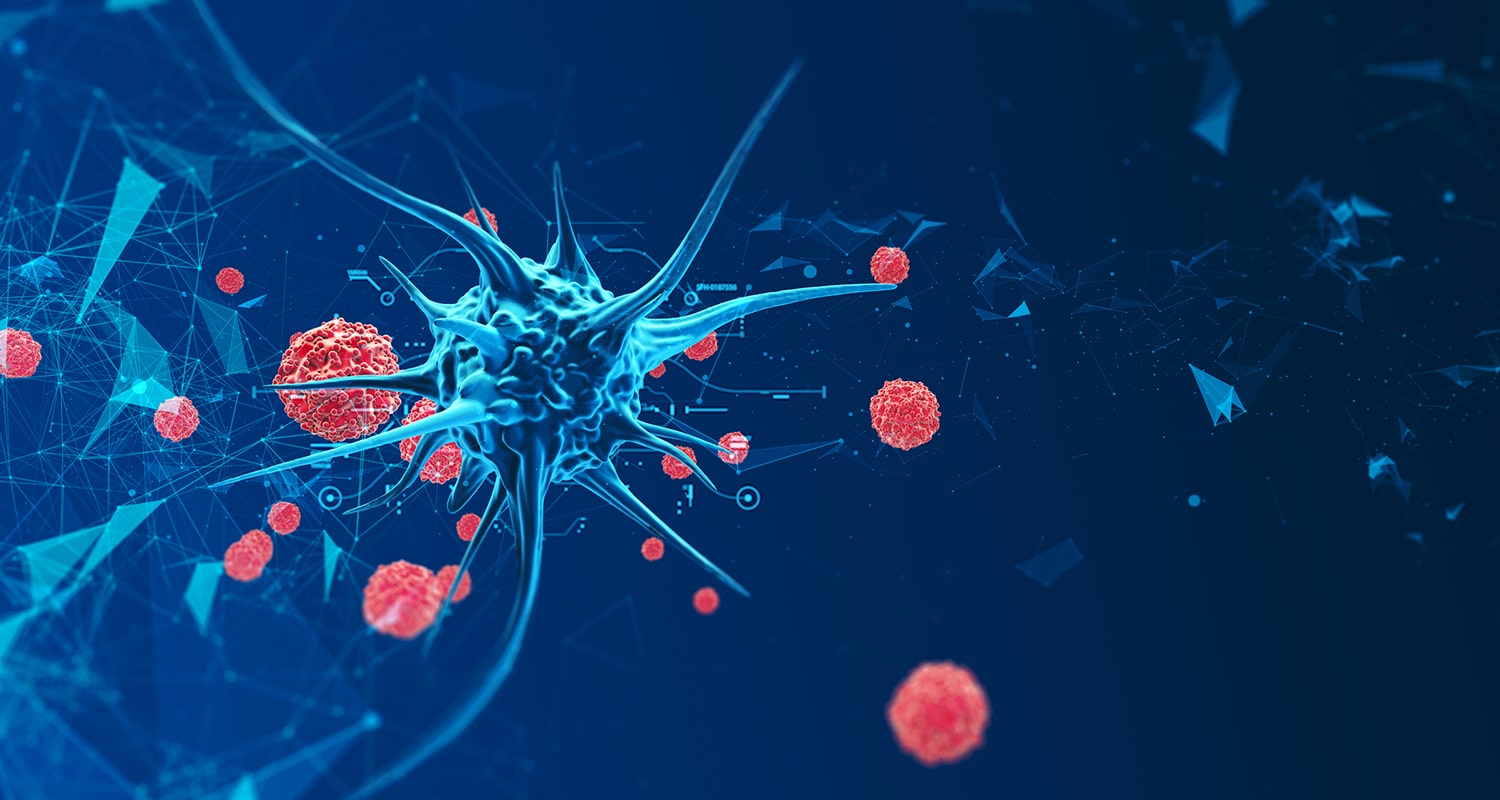
Foods that contain fisetin
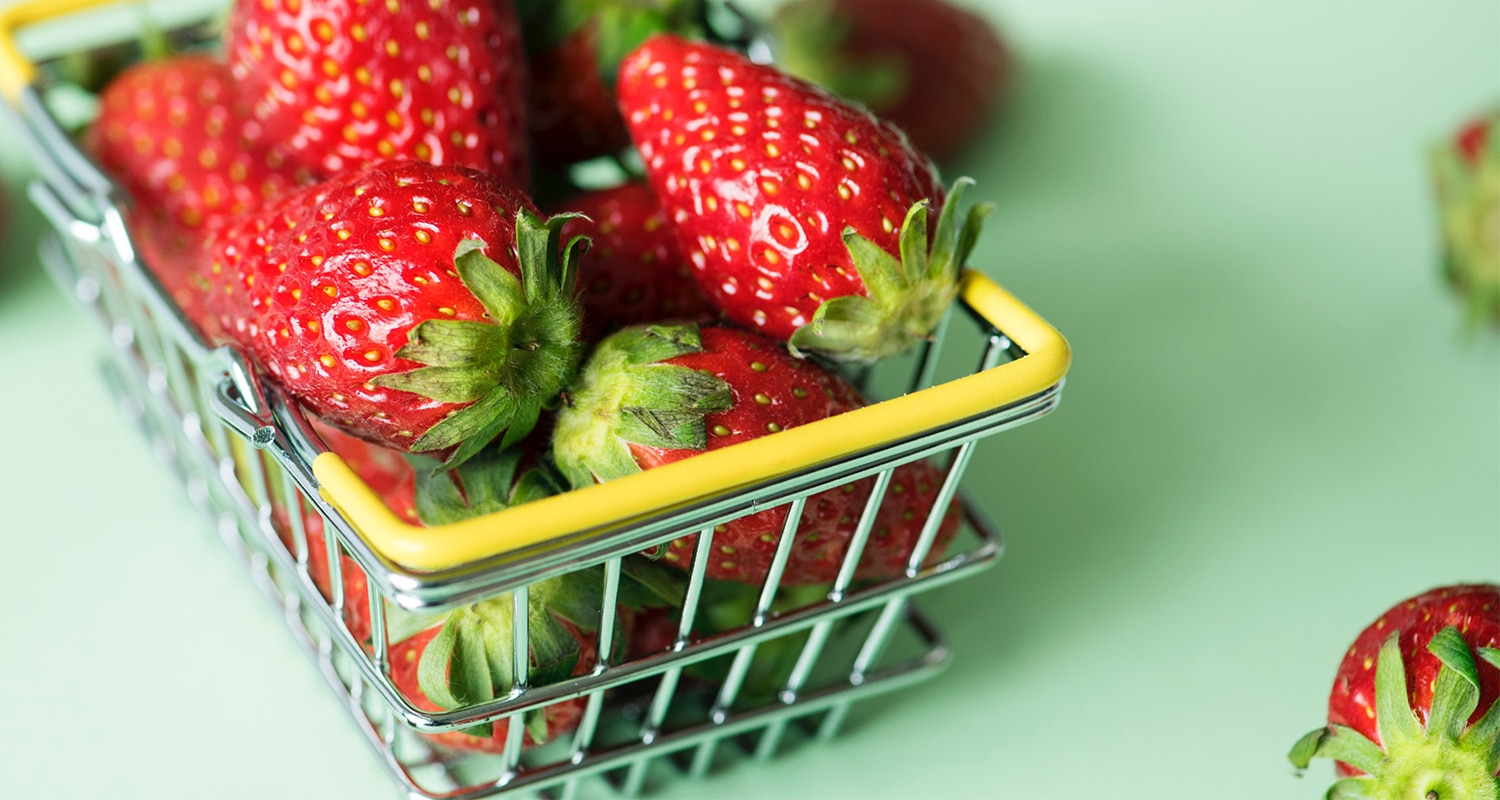
- Strawberries are particularly rich in fisetin. This strawberries and cream smoothie is a great way to get some strawberries, as well as a bunch of quality fats. Strawberries are pretty low in sugar, but you probably don’t want to eat a whole carton of them in one sitting.
- Cucumbers and onions both have a moderate amount of fisetin. You can combine them in this easy Bulletproof pickle recipe to get a nice boost of fisetin. Just be sure you aren’t sensitive to onions — some people don’t tolerate them.
- Grapes and persimmons also have fisetin. They’re both high in sugar, so save them for an occasional treat, or skip them entirely and stick with strawberries when you want some fruit.
Related: Superfoods That Destroy Inflammation in Your Brain
One last thought: Fisetin is one of many polyphenols, antioxidants that often have unique benefits. There are a lot of different polyphenols, and it’s worth your time to include as many of them in your diet as possible, from foods like coffee, green tea, blueberries, chocolate, and more. Check out this article for a deeper look at what different polyphenols do for you and where to get them.










